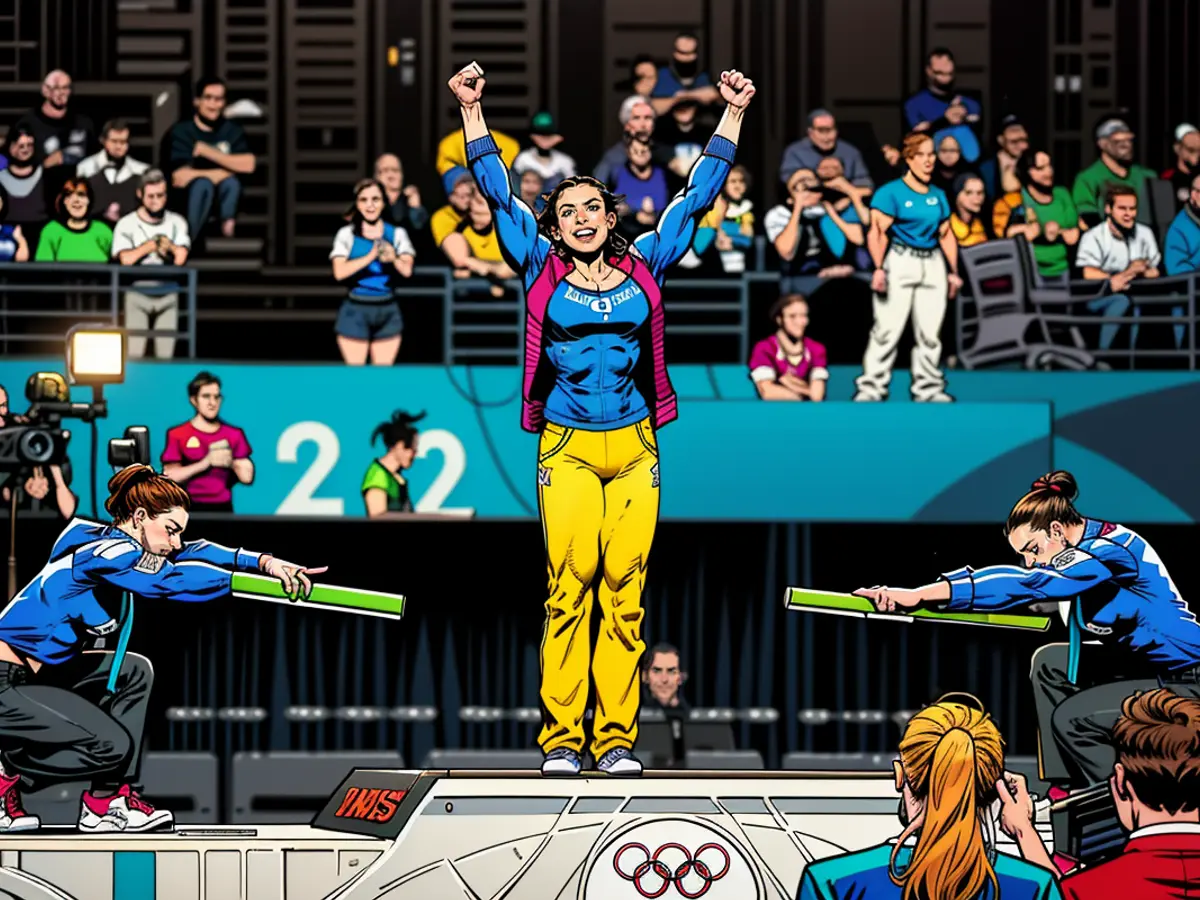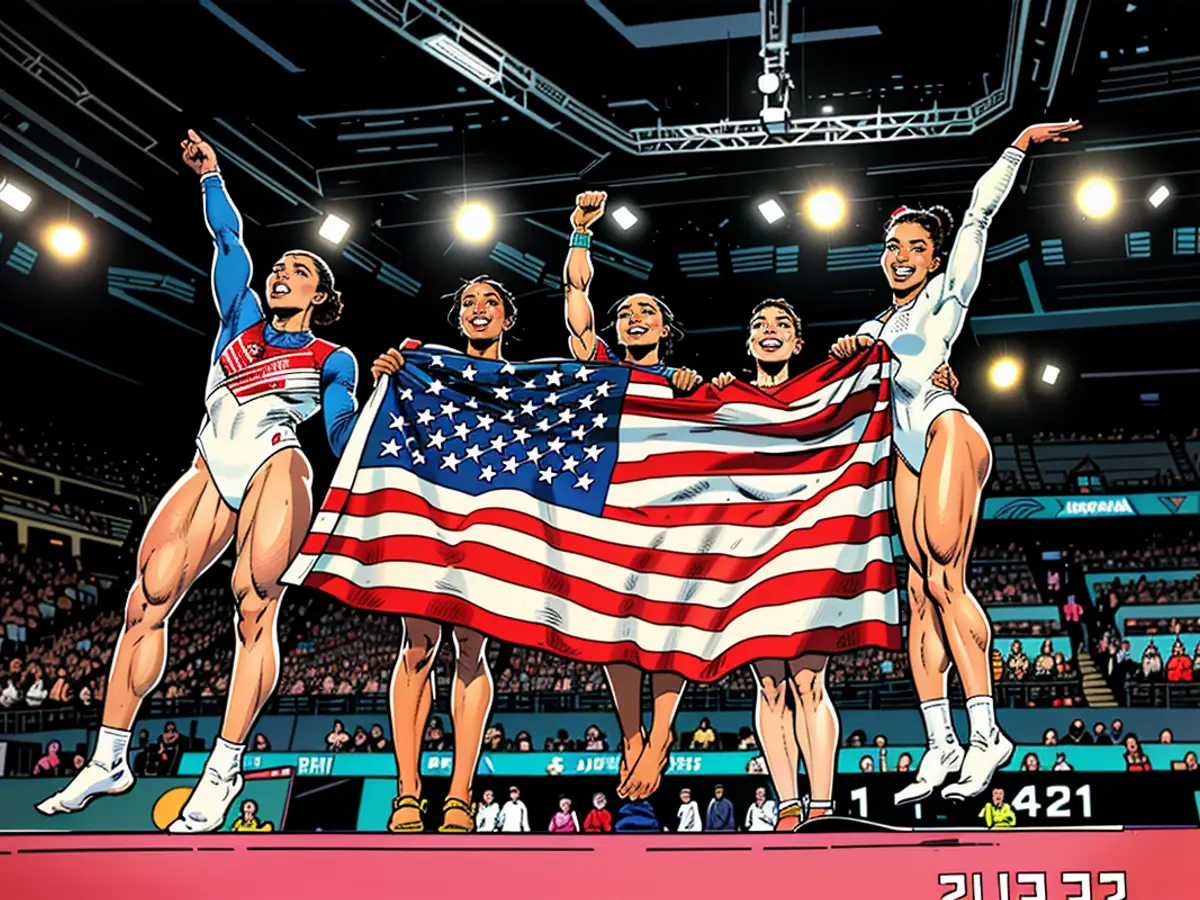Panel member who ruled on Team USA’s Jordan Chiles’ bronze medal appeal has a history of representing Romania in legal cases
Their efforts to reclaim the bronze medal that Chiles thought she had won during the floor exercise at the Paris Olympics are encountering some increasingly bizarre obstacles, and a new twist in the ongoing saga emerged Tuesday.
The head of the three-person panel at the Court of Arbitration for Sport (CAS), which ruled that the USA’s initial inquiry over Chiles’ floor exercise score was filed after the one-minute deadline and awarded third place to Romanian Ana Bǎrbosu on Saturday, has been representing Romanian interests for years.
Dr. Hamid G. Gharavi, Philippe Sands and Song Lu sat on the panel, of which Gharavi was the president, according to CAS. Gharavi’s resume, linked on CAS’ website, lists multiple legal cases in which he has represented Romania in arbitration cases.

The International Institute for Conflict Prevention & Resolution was the first to report on the legal ties Gharavi has with Romania.
In response to an inquiry for comment, Gharavi referred CNN to CAS. CNN has reached out to CAS about a possible conflict of interest within the panel.
In a statement given to the New York Times, CAS said: “In accordance with the guidelines on conflicts of interest issued by the International Bar Association (IBA), CAS has no reason to remove an arbitrator making such disclosure if the parties do not object to his/her appointment.”
What was praised as one of the best-ever Olympic Games has been tarnished by confusion, heartbreak and allegations of incompetence leveled against the governing bodies involved.

Initially, Bǎrbosu thought she had the medal until the US team successfully appealed the judge’s scoring of Chiles’ routine, elevating the American from fifth place up to third and into an instantly iconic image of the first-ever all-black podium in Olympic gymnastics. Chiles held the medal for just five days before CAS awarded it to Bǎrbosu.
Complicating matters, the communication ahead of the court’s decision was flawed.
According to CNN’s contributor Christine Brennan, CAS notified the wrong US officials of the hearing on Saturday.
The US team now says they have video evidence that their appeal was lodged well within the designated 60-second window – but US Gymnastics says CAS informed them that, according to its own rules, the decision cannot be reconsidered “even when conclusive new evidence is presented.”
On Monday, USA Gymnastics said it would “continue to pursue every possible avenue and appeal process, including to the Swiss Federal Tribunal, to ensure the just scoring, placement, and medal award for Jordan.”

Meanwhile, Chiles has removed herself from social media, posting four broken-hearted emojis after Saturday’s CAS ruling. Both she and Bǎrbosu are now in limbo, caught in the middle of a highly emotional fiasco wrought upon them by one of the most significant sports competitions in the world.
The US Olympic and Paralympic Committee seems to be running out of options, but said they will work “diligently to resolve this matter swiftly and fairly.”
It’s hard to know what a fair resolution would look like, but if anyone thinks this will be settled swiftly, they should be reminded of another scene at the Paris Games this summer.
Two days after the conclusion of the gymnastics competition, nine American figure skaters stepped into the sunshine beneath the Eiffel Tower to be presented with their gold medals from the team event at the Winter Olympics in Beijing.
They’d been waiting for them for two and a half years.
The ongoing dispute over the bronze medal in gymnastics at the Paris Olympics has sparked discussions about the role of sports arbitration, with critics questioning if the Court of Arbitration for Sport is impartial when dealing with cases involving nations represented by its presidents.
Given the heightened controversy surrounding the bronze medal in gymnastics, fans and spectators are eagerly following this sport as a testament to the unpredictability and complexity that can sometimes overshadow even the most celebrated athletic events.








